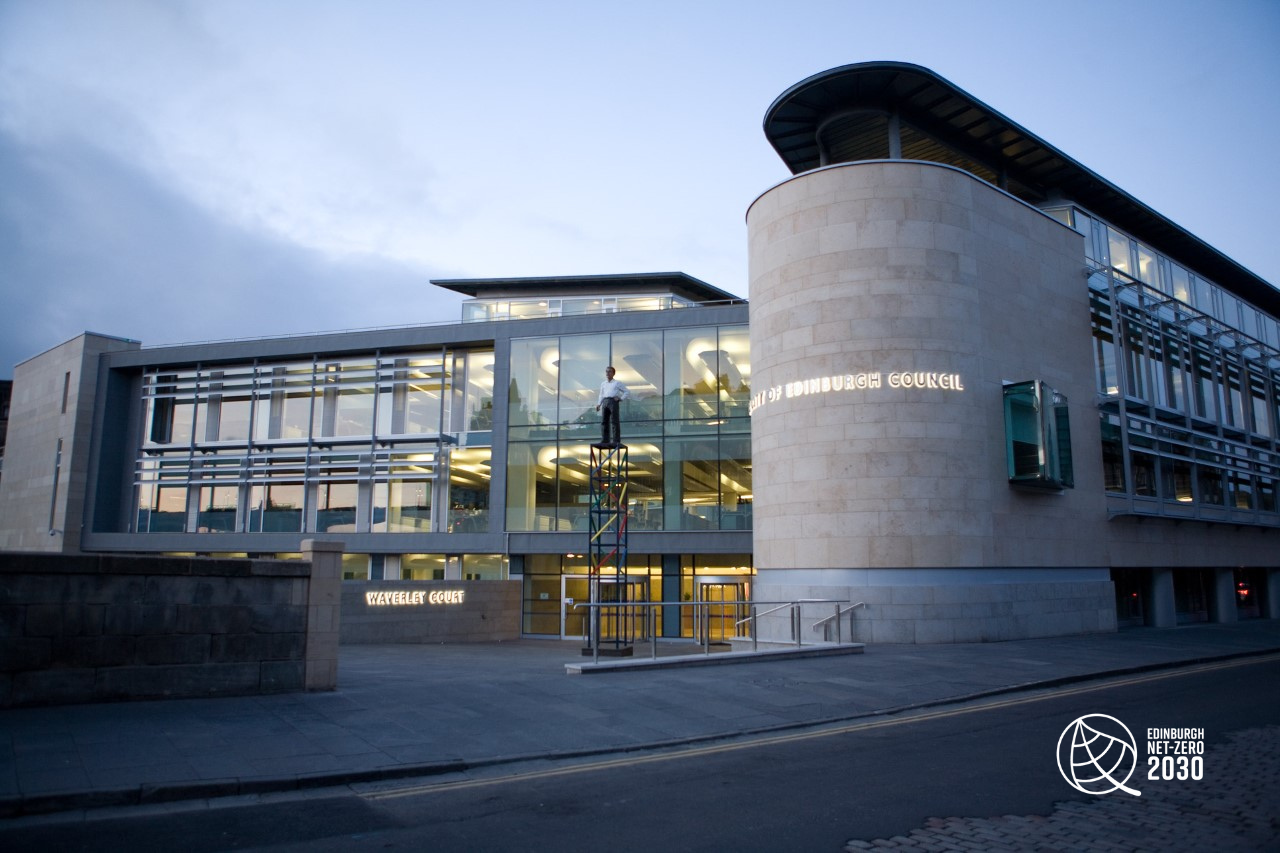
THE City of Edinburgh Council has unveiled its draft plan to become a net zero organisation by 2030.
The blueprint would see all new council buildings built to the highest energy criteria, as well as a £600,000 investment being made in scoping and planning for the retrofit of existing council buildings so that they can meet the highest energy efficiency standards.
According to the most recent emissions footprint calculations for the local authority, buildings make up 63% of the organisation’s emissions. Other energy consumption is 16%, fleet 9%, waste 8%, business travel 3% and water 1%.
Further to the investment in buildings would be electrifying all council car and van fleets; improving school recycling facilities; and investing in a programme of staff training to develop climate knowledge and skills.
Councillor Adam McVey, City of Edinburgh Council Leader said, “The council’s carbon emissions have fallen by 62% since 2005/06, well above the 42% target we were aiming to hit by 2021. We’ve made particular progress in recent years, with a 51% reduction since 2017/18. This ambitious plan aims to build on that success and sets out some of the first steps we’ll need to take across our major emissions sources, to become a net zero organisation by 2030.
“Although the council’s own emissions only account for 3% of Edinburgh’s total emissions, we need to lead by example in our own work to show others what’s possible. The journey to net zero emissions will undoubtedly be difficult, but we have a track record of delivery and firm commitment to deliver on our responsivities to future generations.
“By taking action on climate change and committing to a 10-year strategic approach to deliver a net zero organisation, we’ll not only deliver environmental benefits but deliver wider health, economic and welling benefits for the whole city.
“Becoming a more energy efficient council; encouraging sustainable travel choices and reducing the amount of waste we produce will positively impact on all of us and help to unlock opportunities to reduce inequalities as we build back better and greener.”








